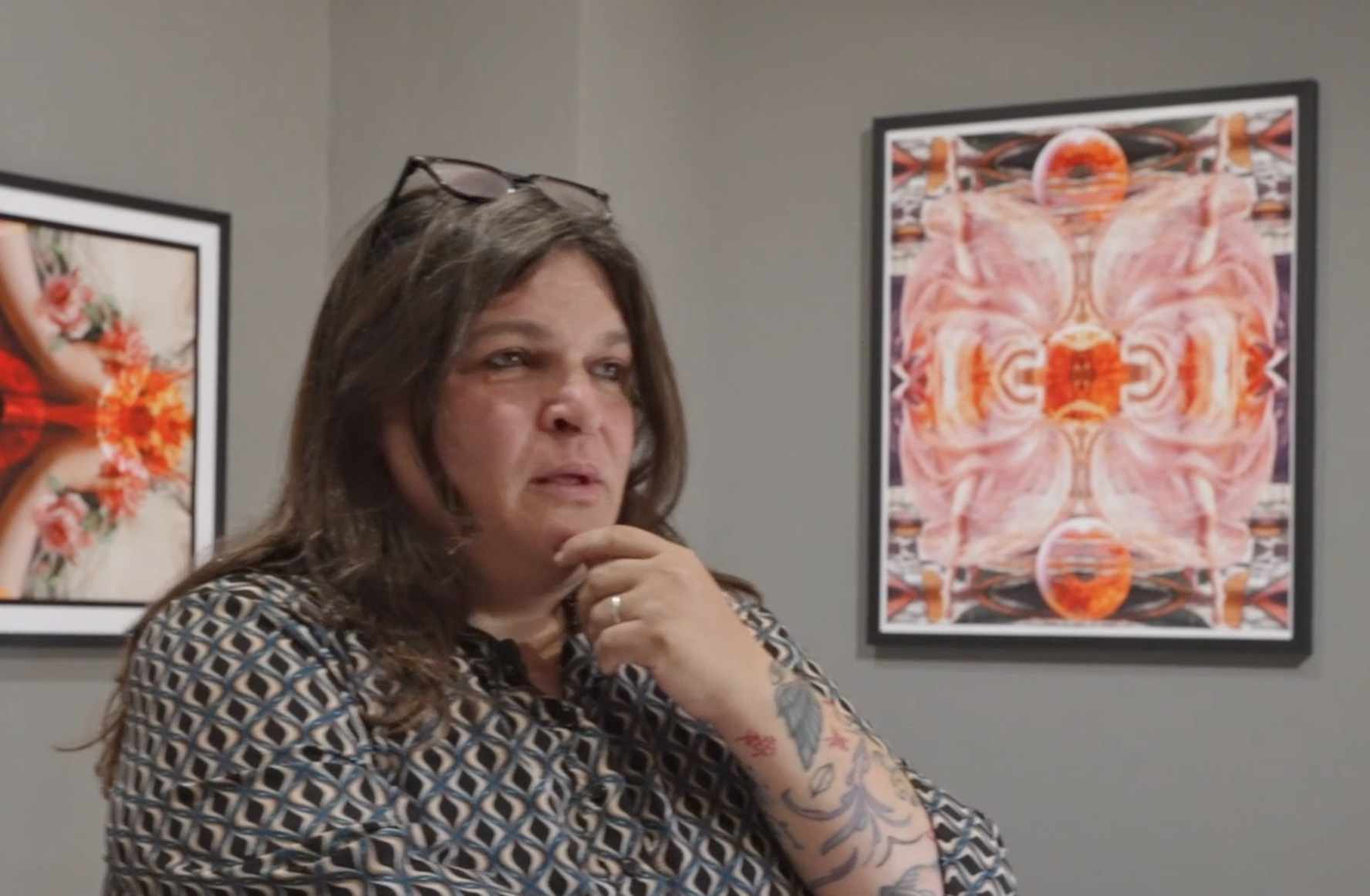Giusy Calia: "Lo sguardo dell'altro può uccidere"

Lunàdigas, arte e devianza start 00:00:00end 00:02:01 Giusy Calia riflette sul concetto di devianza e di come anche le donne senza figli sono state considerati tali. Presenta poi la sua attività di artista e le sue opere.trascrizione GIUSY CALIA: "Io riflettevo su una cosa, sulla parola Lunàdigas e mi fa venire in mente siccome mi sono occupata tantissimo dei manicomi, della tripartizione dei manicomi: delle donne agitate, donne sudice e donne tranquille, no? e io avrei messo... cioè... mi sembra strano che non ci sia un quarto padiglione, no? Le "Lunàdigas", perché la sento proprio una restrizione importante per la donna, il fatto di vederla come una persona senza figli, no?
Perché in realtà figli ne abbiamo sempre, non sono figli naturali ma possono essere figli dell'anima; anche le nostre opere sono in qualche modo nostri figli. Infatti per alcuni - si parlava soprattutto con le mie amiche artiste - lasciare andare i figli nel mondo è difficile a volte. Perché io le sento proprio a volte proprio mie creazioni, cioè cose che abbiamo partorito in tutti i sensi. Poi è chiaro che è molto differente il fatto di non avere figli... ed è difficile lasciarli andare.
Per molto tempo mi sono occupata della figura di Ofelia, di Ofelia che si è suicidata in acqua, e alla fine al posto di rappresentarla alla maniera di Millais - l'Ofelia presentata tantissime volte: fiume, letto di fiori e lei che si adagiava in questo utero - alla fine ho cercato di rappresentarla proprio come se lei fosse in un grembo materno e partorisse se stessa. E quindi ho fatto dei video e delle riprese subacquee in cui c'era un cordone e questa donna che, in qualche modo, partoriva se stessa."
English:
GIUSY CALIA: "I was thinking about something, about the word Lunàdigas, which reminds me... Since I often dealt with mental hospitals, about the tripartition of mental institutions: agitated women, dirty women and quiet women, right? Strangely enough there isn't a fourth pavilion, is there? For Lunàdigas.
Because I can feel it as an important restriction for women, seeing her as a childless person, because we actually have kids all the time. They're not our biological kids, but they can be children of the soul. And our works are also somehow our children, in fact, some say... we discussed this with my my artist friends, letting go of the children into the world is difficult.
Sometimes since I feel them deeply mine, my creations, that is, things we have given birth to, in every sense. Clearly not having children is a different thing, and it's hard to let them go.
For a long time I dealt with the figure of Ophelia, with Ophelia committing suicide by drowning. In the end, instead of depicting her as Millais, you know, Ophelia portrayed many times, river, bed of flowers and she laying down in this womb. Eventually, I tried to represent her as if she were in a womb and giving birth to herself. So I made some... Let's say some videos and underwater shooting where there was a cord and this woman somehow giving birth to herself."soggetto arte devianza figli manicomio non-maternità persone citate Millais, John Everett (pittore) [persona citata]
